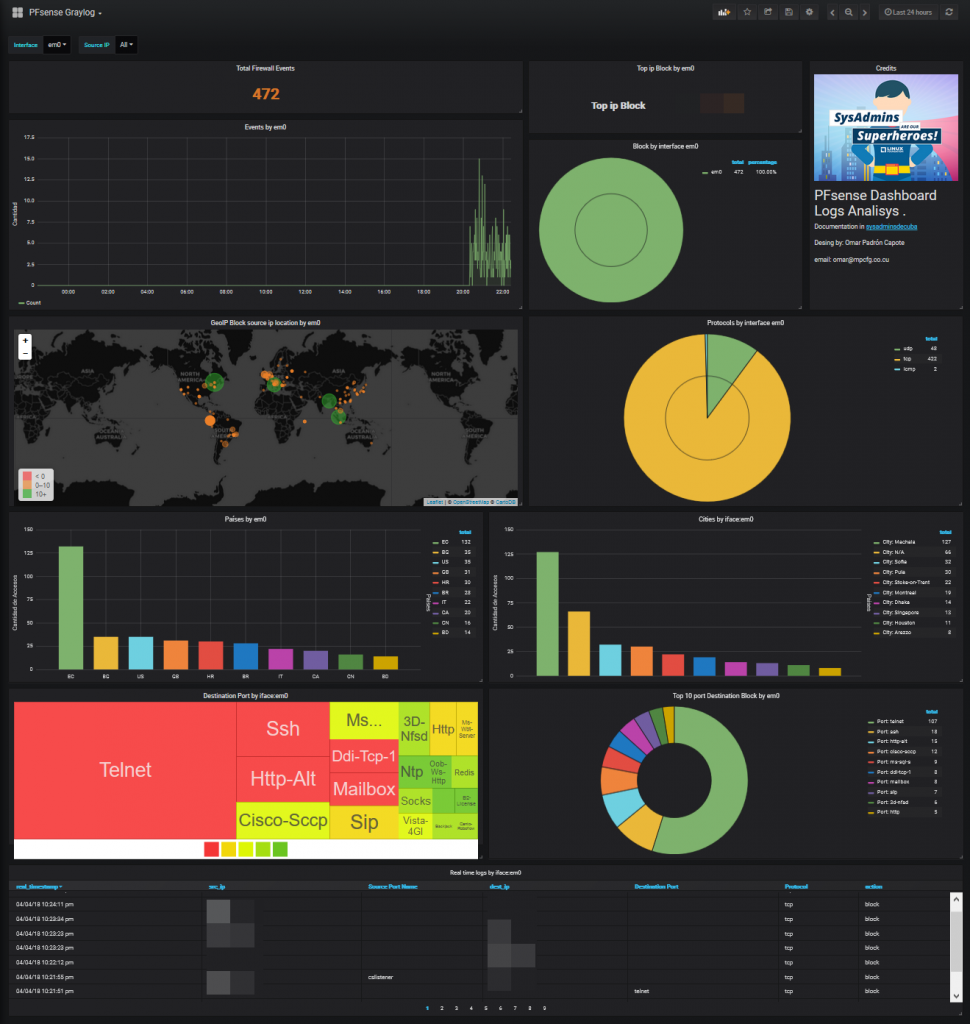Analyzing PFsense logs in Graylog4
We will parse the log records generated by the PfSense Firewall. We already have our graylog server running and we will start preparing the terrain to capture those logs records.
Many thanks to opc40772 developed the original contantpack for pfsense log agregation what I updated for the new Graylog4 and Elasticsearch 7.
Celebro localinstall
# celebro van to use port 9000 so change graylog3 bindport
nano /etc/graylog/server/server.conf
http_bind_address = 127.0.0.1:9400
nano /etc/nginx/conf.d/graylog.conf
systemctl restart graylog-server.service
systemctl restart nginx
wget https://github.com/lmenezes/cerebro/releases/download/v0.9.3/cerebro-0.9.3-1.noarch.rpm
yum localinstall -y cerebro-0.9.3-1.noarch.rpm
sudo sed -i 's|# JAVA_OPTS="-Dpidfile.path=/var/run/cerebro/play.pid"|JAVA_OPTS="-Dpidfile.path=/var/run/cerebro/play.pid -Dhttp.address=0.0.0.0"|' /etc/default/cerebro
chown cerebro:cerebro -R /usr/share/cerebro
systemctl start cerebro
Create indices
We now create the Pfsense indice on Graylog at System / Indexes
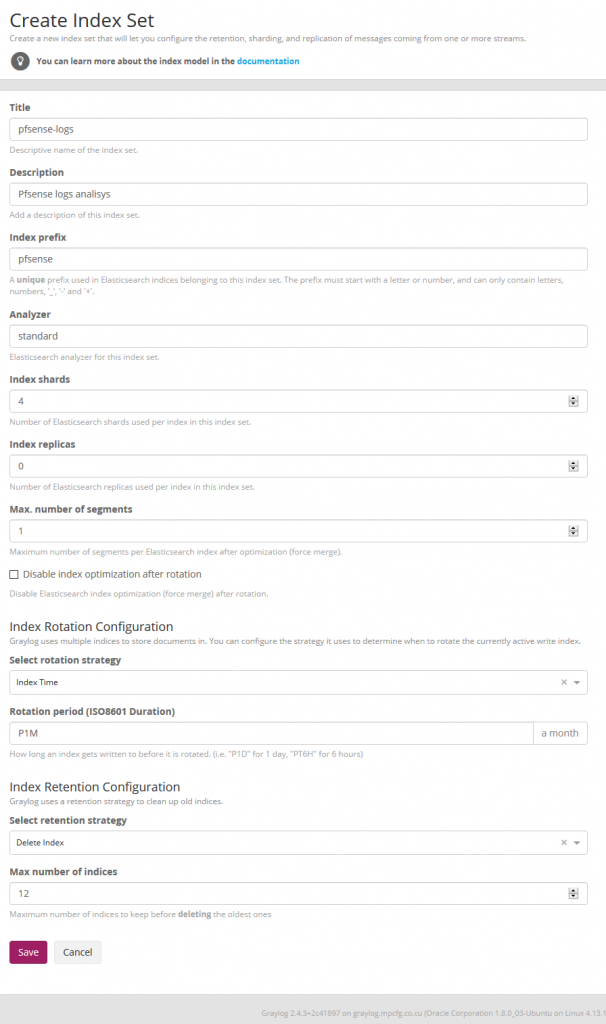
Import index template for elasticsearch 7.x
Go to celebro > more > index templates
Create new with name: pfsense-custom and copy the template from file pfsense_custom_template_es7.json
In Cerebro we stand on top of the pfsense index and unfold the options and select delete index.
systemctl stop graylog-server.service
git clone https://github.com/devopstales/pfsense-graylog.git
cd pfsense-graylog/service-names-port-numbers/
cp service-names-port-numbers.csv /etc/graylog/server/
Geoip database
wget -t0 -c http://geolite.maxmind.com/download/geoip/database/GeoLite2-City.tar.gz
tar -xvf GeoLite2-City.tar.gz
cp GeoLite2-City_*/GeoLite2-City.mmdb /etc/graylog/server
# OR
yum install geoipupdate
geoipupdate -d /usr/share/GeoIP/
systemctl start graylog-server.service
Enable geoip database at System > Configurations > Plugins > Geo-Location Processor > update
Chane the order of the Message Processors Configuration
- AWS Instance Name Lookup
- Message Filter Chain
- Pipeline Processor
- GeoIP Resolver
Enable geoip database
Import contantpack
import
chaneg date timezone in Pipeline rule
Go tu Stream menu and edit stream
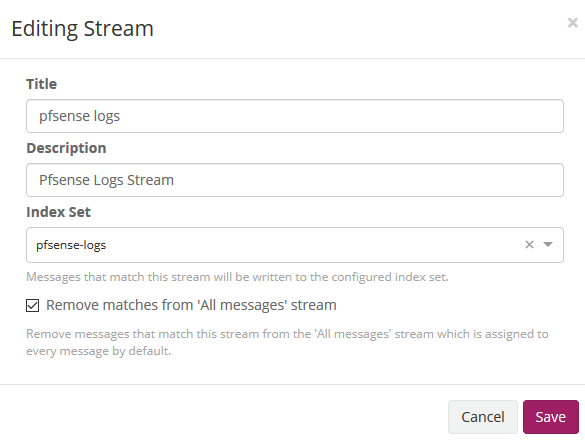
System > Pipelines
Manage rules and then Edit rule (Change the timezone)
rule "timestamp_pfsense_for_grafana"
when
has_field("timestamp")
then
// the following date format assumes there's no time zone in the string
let source_timestamp = parse_date(substring(to_string(now("Europe/Budapest")),0,23), "yyyy-MM-dd'T'HH:mm:ss.SSS");
let dest_timestamp = format_date(source_timestamp,"yyyy-MM-dd HH:mm:ss");
set_field("real_timestamp", dest_timestamp);
end
Confifure pfsense
Status > System Logs > Settings
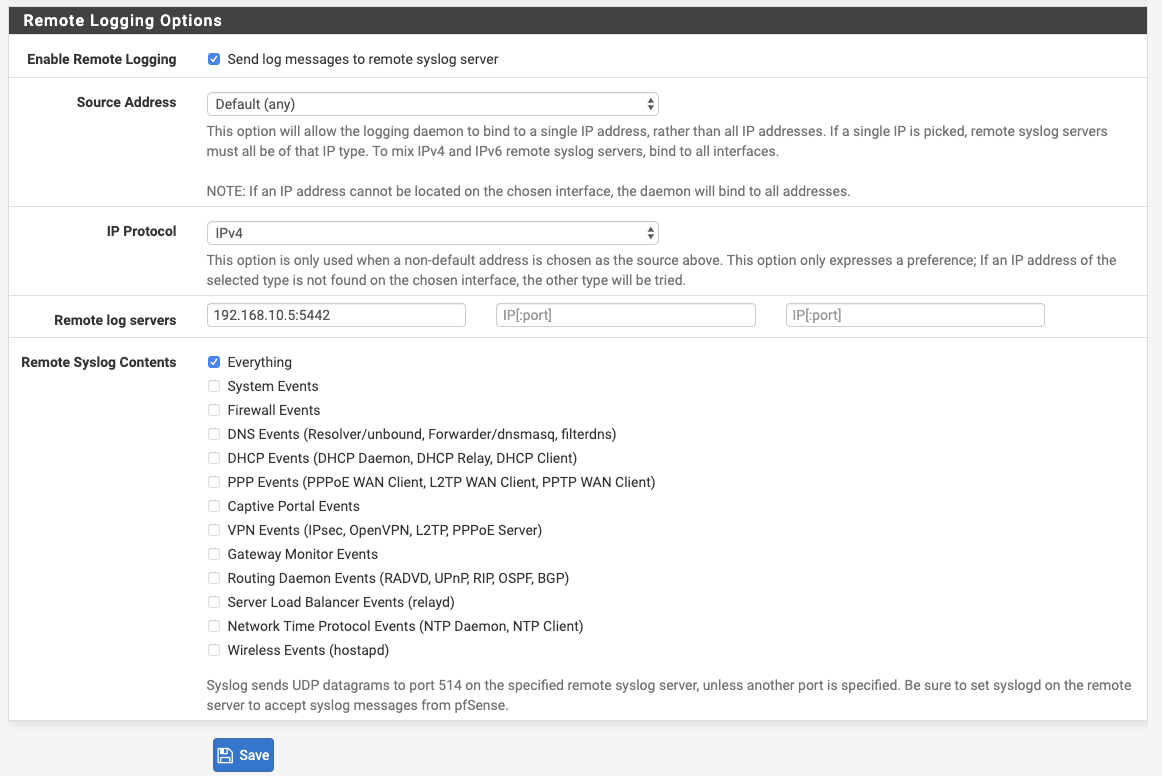
Confifure Opnsense
Access the Opnsense GUI
System menu, access the Settings sub-menu and select the Logging / Targets option.
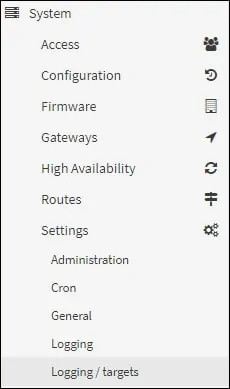
Add a new logging target and perform the following configuration:
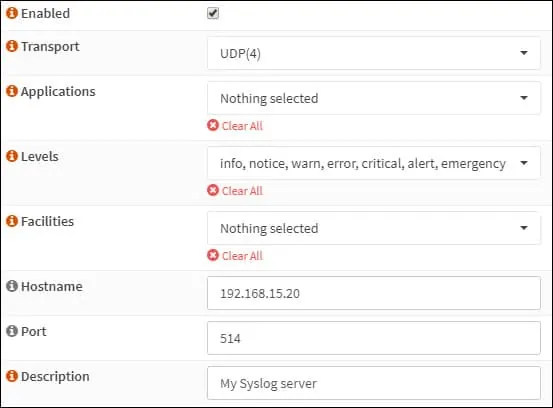
Install grafana Dashboard
# install nececery plugins
grafana-cli plugins install grafana-piechart-panel
grafana-cli plugins install grafana-worldmap-panel
grafana-cli plugins install savantly-heatmap-panel
systemctl restart grafana-server
Create new datasource:
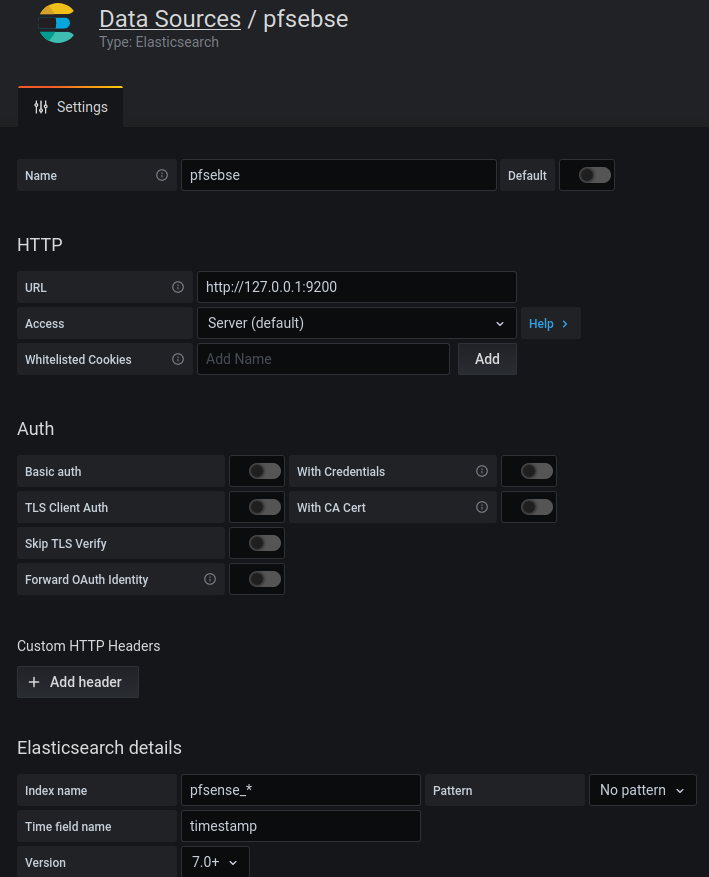
Import dashboadr from store: id: 5420
